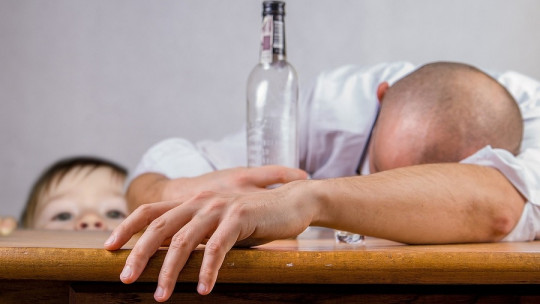
Addictions are a complex phenomenon that affects millions of people around the world. From alcoholism to addiction to gambling, drugs, alcohol or tobacco itself. Addictions can have a devastating impact on the lives of those who experience them and the people in their lives.
The transtheoretical model of change
However, understanding the stages of change in the recovery process can be critical to addressing these addictions effectively and compassionately. To do this, we are going to talk about the Transtheoretical model of change.
1. Precontemplation Stage: Conscious Ignorance
Precontemplation is the phase in which the person may be experiencing problems related to addiction, but does not yet recognize the need for change. At this stage, you can minimize the negative effects of his behavior or completely deny that you have a problem. It is common for us to say phrases like “I have perfect control over whether I want to consume or not” or “I only use it recreationally.”. Education and awareness about the consequences of addiction are vital to start the process of change.
2. Contemplation Stage: Reflection and Recognition
During the contemplation stage, the person begins to recognize that they have a problem with addiction and seriously considers the possibility of changing. He may weigh the pros and cons of kicking his addiction and feel significant ambivalence about the change. At this stage, it is important to offer emotional support and resources to help people explore their motivations for change.
3. Stage of Preparation for Action: The First Step Towards Transformation
In the preparation for action stage, the person is ready to take concrete steps to address their addiction. He may be seeking professional help, setting goals for change, and developing strategies to overcome obstacles she may encounter along the way. It is crucial to build on this initial motivation and provide resources and ongoing support to maintain momentum toward change.

4. Action Stage: Taking Control of Life
During the action stage, the person actively implements strategies to change their addictive behavior. He can participate in treatment programs, seek individual or group therapy, and adopt healthier lifestyle habits. At this stage, it is essential to provide ongoing support and encourage commitment to the long-term recovery process.
5. Maintenance Stage: Building a Healthy and Balanced Life
Once the person has made significant changes in their addictive behavior, they enter the maintenance stage. In this phase, we strive to maintain gains and prevent relapses, using strategies specific to each person. This may involve developing coping skills, establishing strong support networks, and practicing healthy habits to manage stress and maintain emotional well-being.
Relapses: an opportunity to learn and grow
Although relapses can be discouraging, it is important to understand that they are a normal and common part of the recovery process. Relapses do not mean that progress has been completely lost; rather, they are an opportunity to reflect, learn, and adjust your approach to change. It is crucial to offer compassionate support and encourage people to recommit to their recovery.
It is normal that when facing all these changes certain fears appear, of not being able to quit, of relapse and not being able to resume the commitment to quit the addiction or of not being able to consume the object of addiction again. These fears are normal, but the most important thing is to face the process day by day, with the achievements and difficulties that are present today.
Understanding the stages that are part of the path when we are going to leave an addiction is essential both for the person who leaves the addiction in question and for the people who are going to accompany them in the process. It is important to understand that it is a long process and that relapses do not take us to the beginning of it, rather, they help us identify conflict sources that can make me use again and we can prepare for them in case they reappear in the future. Remember that relapse is part of the process and that all the path you have already walked is not undone by going through them. If you are in a similar situation or have a loved one going through this process, remember that there are professionals who can help you navigate this path.









